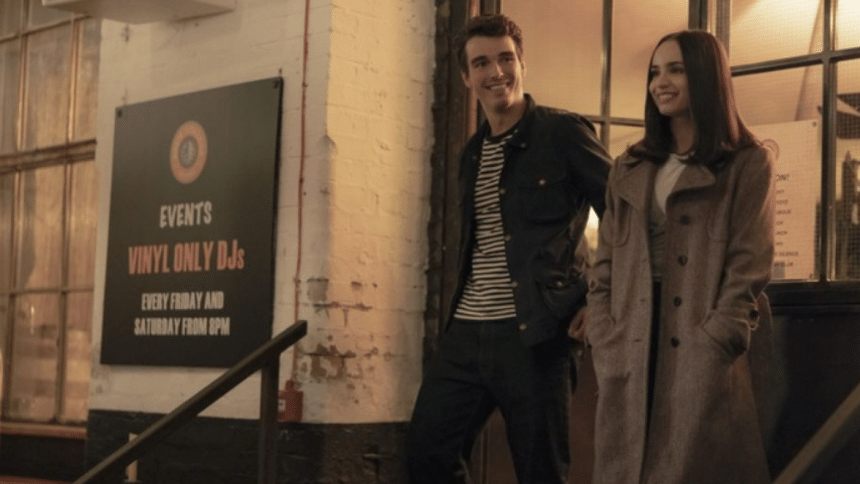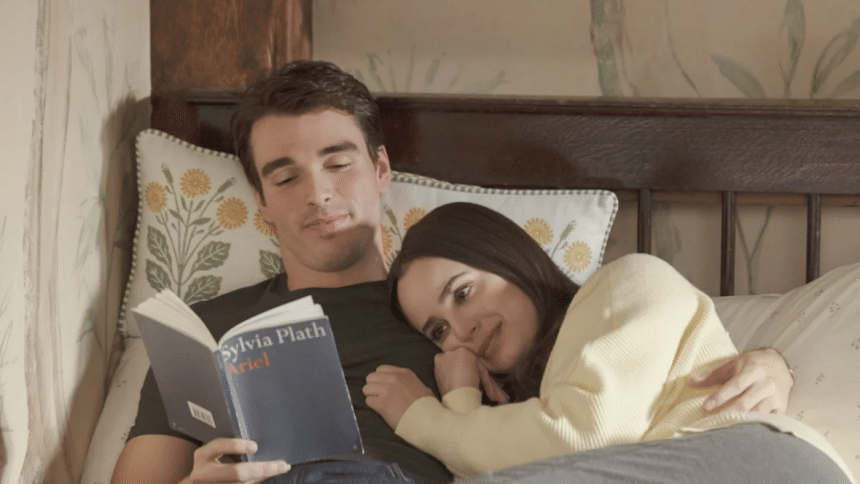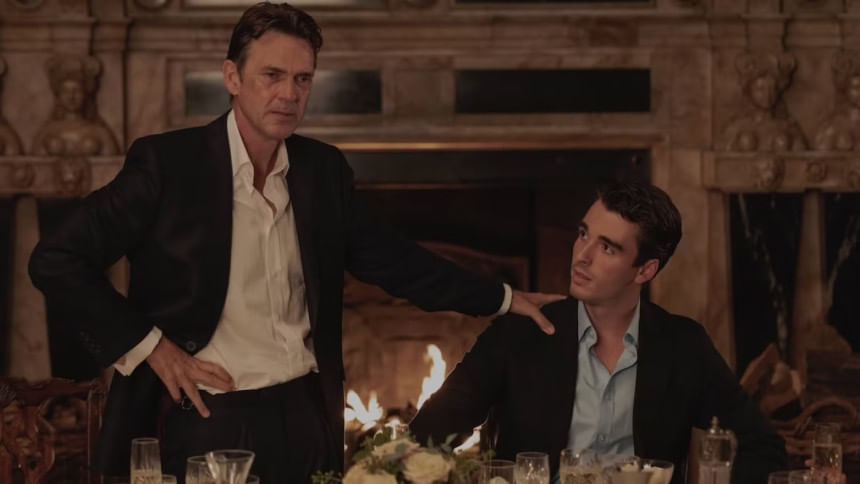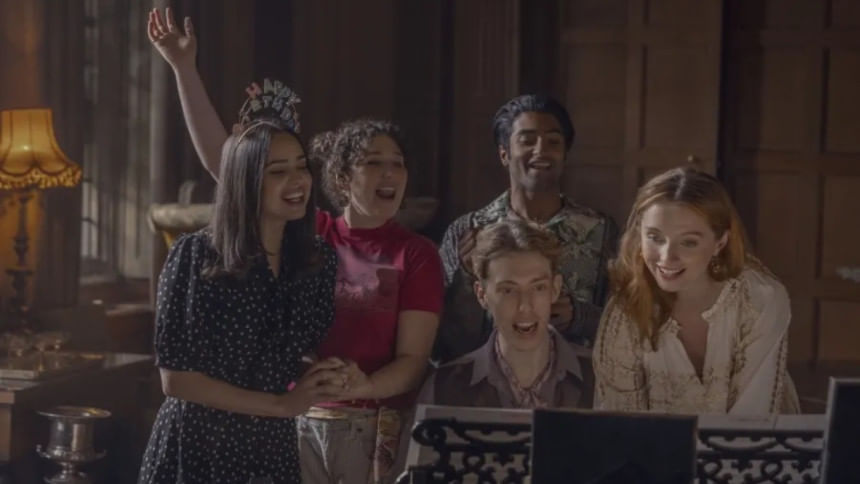Exploring love, loss, and literature in ‘My Oxford Year’

Over the past week, my Instagram feed has been practically throwing "My Oxford Year" at me, with Tumblr-text captions over softly lit stills, reels romanticising ancient libraries and English cities, and teary-eyed confessions that claim this film destroyed them, in the best way. And like any curious cinephile, I clicked to watch it on Netflix. What I found was a film trying to be both the dream and the ache, the fantasy and the wake-up call.
At first glance, "My Oxford Year", directed by Iain Morris and adapted from Julia Whelan's novel, looks like an average enemies-to-lovers trope soaked in ivy and ale. Sofia Carson's Anna de la Vega is a high-achieving, poetry-loving American who has deferred a Goldman Sachs job to spend a year at Oxford, essentially weaponising her inner Rory Gilmore for one last academic hurrah. Enter Jamie Davenport, played by Corey Mylchreest, the charmingly infuriating Brit who, naturally, is the guy who splashes her with a car and then turns out to be her professor. Insert some witty banter, classic pub flirting, a kebab food truck, and you have a love story that begins to steep in the drizzle of English melancholy.

The opening act of the film is drenched in rom-com tropes, almost to a fault. It ticks all the boxes, right from fish-out-of-water gags, the British pub banter and the accidental karaoke. There is even the textbook "I can fix him" energy between Anna and Jamie, who embodies every emotional red flag with brooding finesse. But before you can settle into the soft-focus flirtation, the film lurches toward something weightier. Jamie's cancer diagnosis flips the tone entirely, ushering in themes of mortality, autonomy, and grief. It is not quite "Me Before You" melodrama, nor does it reach "The Fault in Our Stars" poignancy. Instead, it lands somewhere in the middle; less daring than it wants to be, more ambitious than it knows how to handle.
That tonal whiplash is where the film both falters and becomes interesting. It does not commit fully to its character arcs. Anna is introduced as a woman of fierce ambition, but the story rarely explores her internal conflict. Her identity as a first-generation daughter of immigrants, caught between pragmatism and passion, is touched on but never explored in depth. Rather, it is Jamie's familial trauma, his rift with his father, the shadow of a dead brother and the ticking clock of his illness that begins to dominate the narrative.

Anna, despite being the film's emotional anchor, often feels like she is orbiting his story rather than living her life. Her Oxford year was supposed to be hers, as a poetic, self-defining journey. But somewhere along the way, she becomes a caretaker in someone else's arc. The writers flirt with giving her agency, and there is a satisfying moment where she walks away from a snobbish date and another where she demands the truth from Jamie, but these moments are fleeting. What could have been a coming-of-age story shaped by love becomes a love story that stunts her coming-of-age.
However, there is no denying that Carson and Mylchreest elevate the script. Their chemistry is the kind that teeters between tension and tenderness, and it keeps the story afloat even when the pacing stumbles. It builds gently through meaningful conversations, quiet companionship, and the kind of inside jokes that only come from shared time. One of the most tender scenes involves Jamie introducing Anna to the oldest books in the Oxford library, not as a grand romantic gesture, but as a quiet offering of trust, curiosity, and shared passion. It is in those moments that the film finds its heart, reminding us that intimacy can be as simple as feeling seen.

This film is littered with references to some of the classics: echoes of "About Time" in its sentimentality, a light brush of "Notting Hill" in its comedic beats, and the ghost of "One Day" in its heartbreak. But "My Oxford Year" does not quite live up to any of them. It wants to be a story of finding yourself through love and loss, of embracing life's messiness, and in patches, especially the final 30 minutes, it gets there. When Jamie finally breaks down, when Anna chooses the difficult love, when they waltz at a ball knowing they are dancing on borrowed time, all these moments are beautifully rendered. They remind us that love stories do not have to last forever to matter forever.
Visually, the film is undeniably charming. The cinematography by Remi Adefarasin lends a golden hue to Oxford's cobblestone aesthetic, making every frame feel like a literary postcard. The score by Isabella Summers swells at just the right moments, accentuating the dreamlike aura of the first half and the emotional gut punches of the second. Editors Victoria Boydell and Kristina Hetherington create montages that sparkle with energy, particularly the fantasy vs reality sequence at the end, which lands more poignantly than expected. And all this makes "My Oxford Year" the kind of film that sneaks up on you. It starts as a saccharine rom-com, then asks harder questions by the time it ends. It is clumsy at times, uneven in its focus, but it is also earnest and occasionally profound.

 For all latest news, follow The Daily Star's Google News channel.
For all latest news, follow The Daily Star's Google News channel. 




Comments